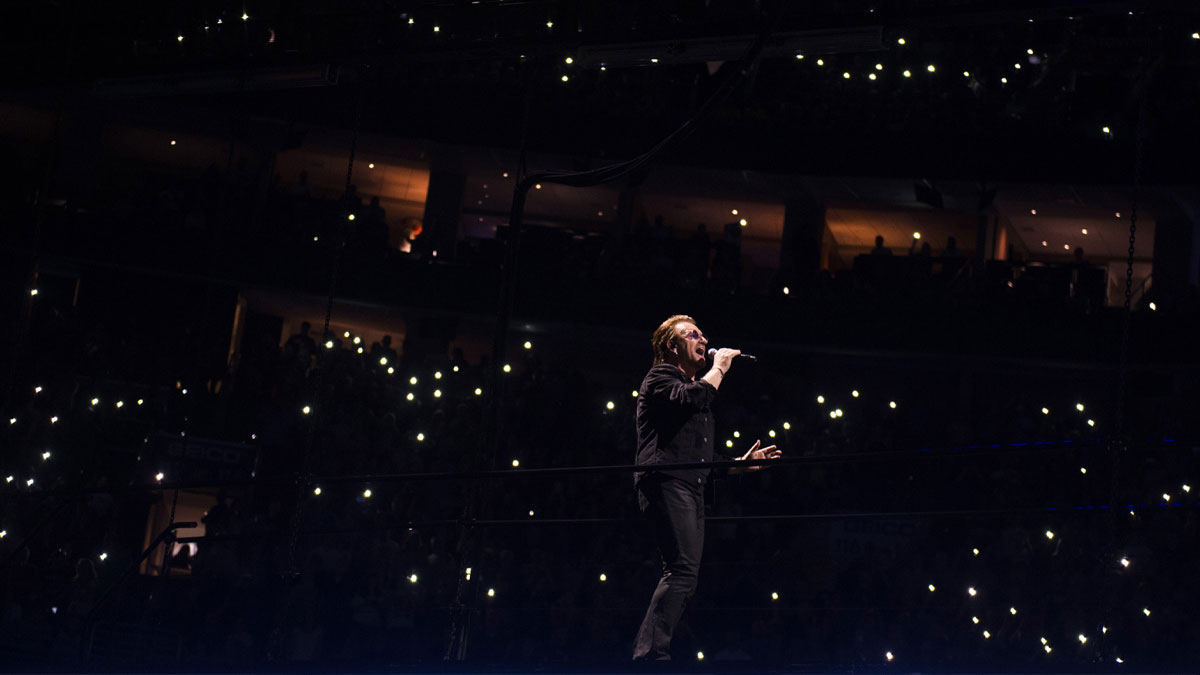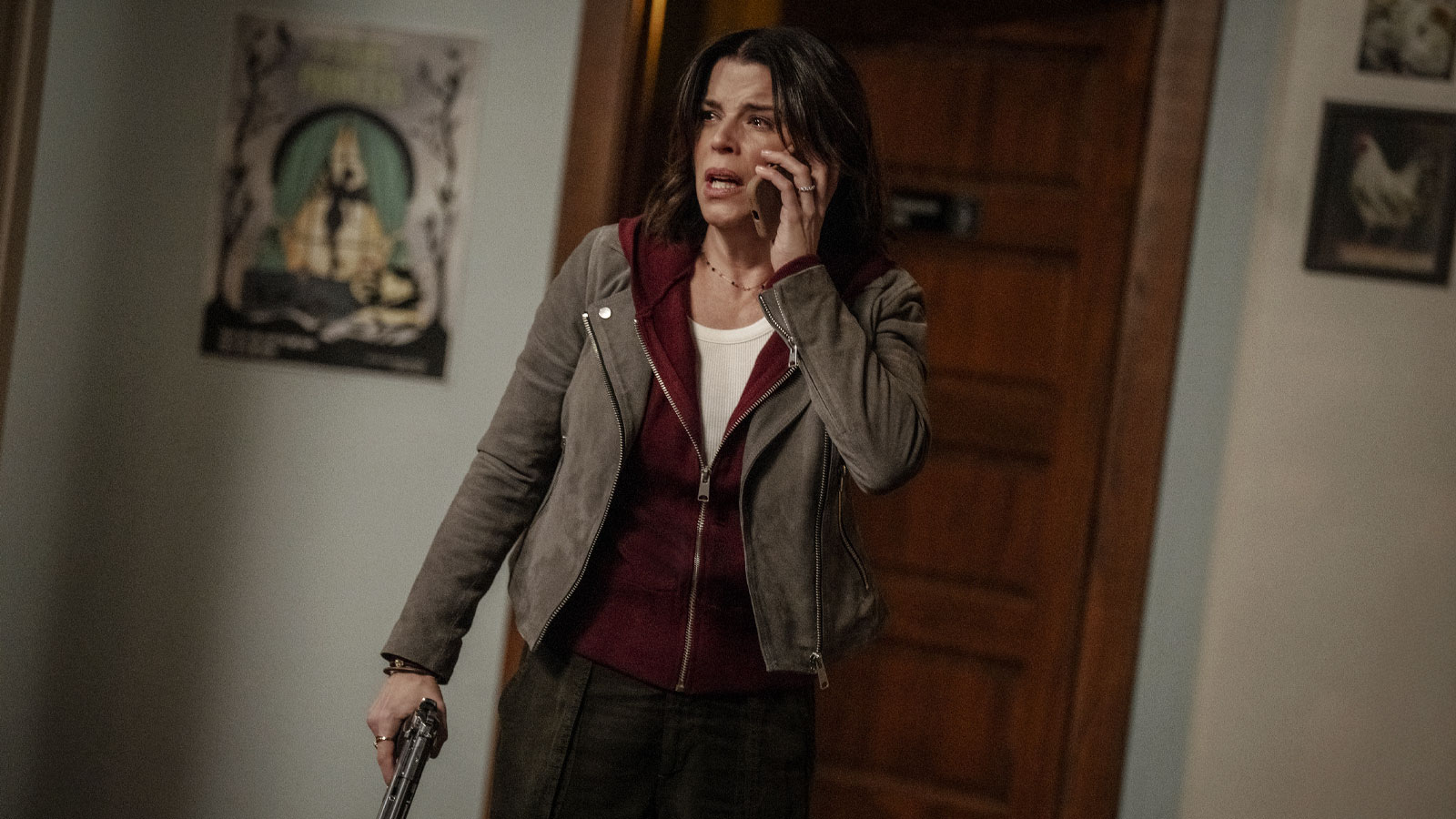After a decade, U2's Songs of Innocence lives on as Bono's most personal work. Even 10 years later, Songs of Innocence remains impactful on U2's current era, for lack of a better term.
It is an album about grasping onto the last remnants of adolescence as adults. This message becomes clear from the album cover. A shirtless Larry Mullen Jr. is literally grasping onto his teenage son, holding on tight to those formative years.
Since it came out, U2 has released two more entries in the “Songs of” series. Songs of Experience, a worthy follow-up to Innocence, flips the script and is a series of love letters from an older and wiser Bono.
But Songs of Innocence has a special connection to yours truly. I was 13 years old when it came out, and the album captured my attention. It was not full of bombastic political rants like War or the iconic leading trio of Joshua Tree songs, but it was earnest.
Not many rock bands besides U2 look back at their childhood as Bono does in Songs of Innocence. Bruce Springsteen seems to have revisited Asbury Park in his seventies, maintaining his youthful zest to this day, but plenty of emotions are felt in Songs of Innocence.
Contrasting love songs

From grief to love, Bono touches on it all in Songs of Innocence. He goes from talking about how we sabotage relationships when things are going in “Every Breaking Wave” to crooning about his “first time” in “Song for Someone.”
The former is an example of Bono's craftsmanship of writing twisted love songs. “With or Without You” and “Ultra Violet (Light My Way)” both previously displayed this. But “Every Breaking Wave” features the best lyrics from Bono in decades.
The album version does sound similar to “With or Without You,” thanks to Adam Clayton's bass part. The piano version featured on the Deluxe Edition's bonus tracks is even better. Bono pours his heart and soul into his vocal performance, soaring to heights he hadn't reached in years.
Conversely, “Song for Someone” is the type of sappy love song that falls on the side of endearing rather than corny. His wife, Alison Hewson, has been with him since high school. But still, Bono writes it like a teenager scared to lose his love before heading away for the summer. “If there is a light, don't let it go out,” he repeats throughout.
Homages to past idols
Songs of Innocence opens with a classic U2 anthem. “The Miracle (of Joey Ramone)” is as punk-rock as the album gets. With its opening chants to its energetic chorus, “The Miracle” serves as an ode to one of the band's biggest influences.
Granted, it is more advanced than the Ramones' work (which usually consisted of, at most, two or three chords). “The Miracle” is an electric song to hear live. When it opened concerts on the Innocence + Experience Tour, it kick-started the show with energy. It is probably the closest the band has come to a song like their Boy album in years.
The third song on the album, “California (There Is No End to Love),” is an ode to Hollywood and stardom. It does sound like “U2 meets the Beach Boys,” especially with its choral opening.
However, beneath its pop textures is a song about newfound stardom, something Bono touches on in Songs of Experience's “The Showman (Little More Better).” This time around, Bono sings about how “Everyone's a star in our town” and someone crying in a bedroom mirror.
Lastly, “This Is Where You Can Reach Me Now” is a funky homage to the Clash. It begs the question if “This Is Where You Can Reach Me Now” and “The Crystal Ballroom” spawned out of the same sessions. They sound similar, almost copying the vibes of The Munsters' theme.
Bono sings about grief
I find music to be therapeutic. Sometimes, songs hit so close to home that you are sure they were written for you. This is the case with “Iris (Hold Me Close).”
It is written about Bono's mother, Iris, who passed away when he was a teenager. For U2 fans, they know the story. But “Iris” was my introduction to this part of Bono's past.

During U2's Innocence + Experience Tour, Bono would sing the song as a short video of his mother running on the beach was displayed on the giant LED screen, which scaled the arena floor. Stars aligned around the video as Bono was reunited with his mother.
Around the time Songs of Innocence came out, I was feeling a lot of similar emotions. From what I thought was a first love to the loss of my grandmother, who was similarly proud of her Irish heritage, Songs of Innocence helped guide me through those feelings and emotions.
In “Iris,” a fifty-something-year-old Bono is begging his mother to hold him close and never let him go. The most mundane moments, like Iris standing in a hall, are recalled by the singer. Surprisingly, it is not the major milestones or moments that are specified by Bono in the song.
The Troubles' impact on U2
Growing up in Dublin, Ireland, in the seventies meant dealing with the Troubles. The conflict between North and South Ireland was ever-present during U2 members Bono, The Edge, Adam Clayton, and Larry Mullen Jr.'s childhoods.
The most on-the-nose reference is Songs of Innocence's final track, “The Troubles.” However, it is similarly discussed in “Raised by Wolves” and “Cedarwood Road.”
The former is one of the band's most intense songs in a long time. It opens with wolf-like sounds before Bono starts singing about car bombings that occurred in Dublin and Monaghan in the seventies. He is also discussing the theme of addiction, as he talks about someone writing his name with a needle.
As Songs of Innocence laments, Dublin was not a peaceful place to live in the seventies. Bono describes “Cedarwood Road,” the road he grew up on, as a “warzone in my teens.” The divide between North and South Ireland has never felt bigger than in this song.
Songs of Innocence's lasting legacy on U2 after 10 years

Since Songs of Innocence, U2 has become more meditative and reflective. Some fans may roll their eyes at how much U2 has looked at the past in the last decade — I think it is endearing.
This also came after the blockbuster 360 Tour. The tour was a spectacle and featured the band's greatest hits. But bringing U2 back down to Earth with such an intimate album was a smart move.
Plus, there is a vast difference between dipping into the nostalgia well one too many times and using your past to propel you forward. U2 has done some of their best work on the heels of Songs of Innocence.
And yet, for one reason or another, it does not receive the praise it deserves. “Every Breaking Wave” is up there with the band's best work, and it is a steady album full of good songs.
Like the Ramones were for Bono, Songs of Innocence is a moment where a “miracle occurred” for this U2 fan. The album provided something to latch on to as an impending fan.




















